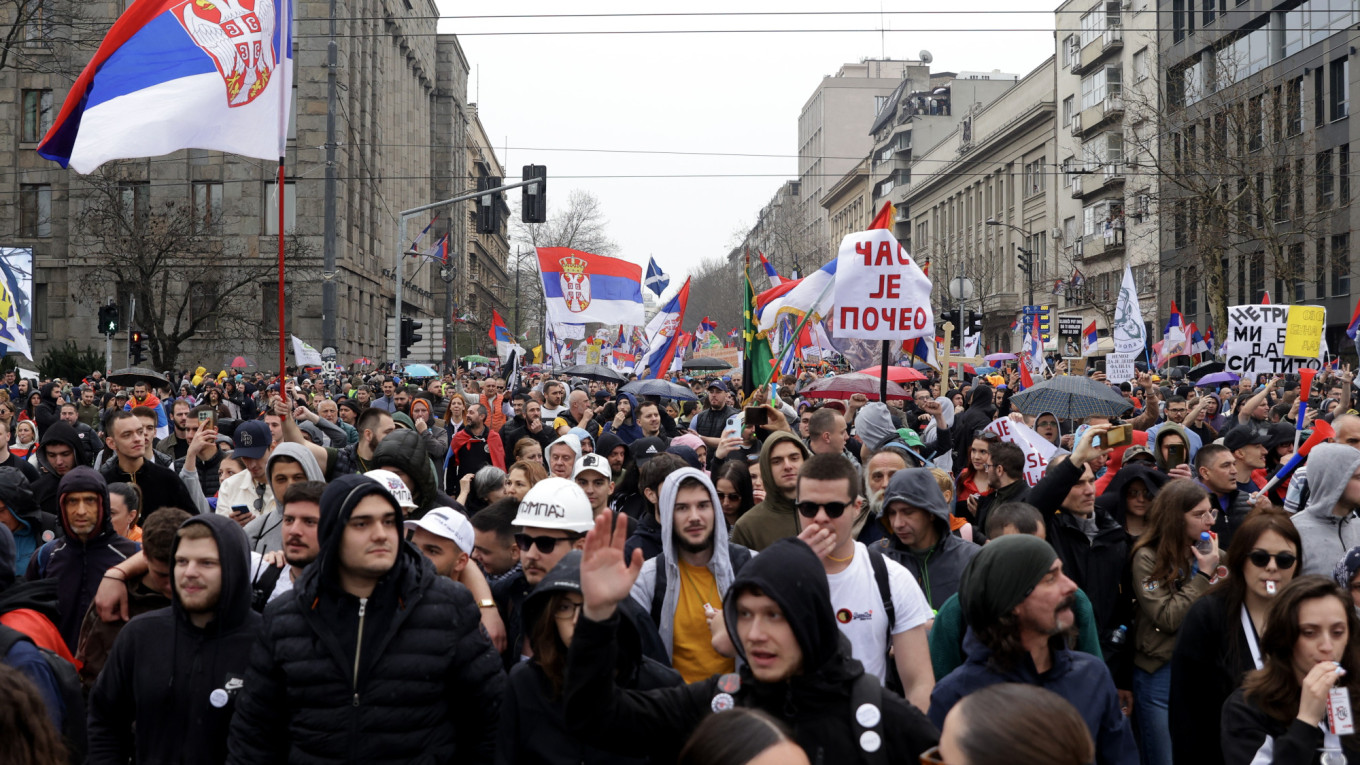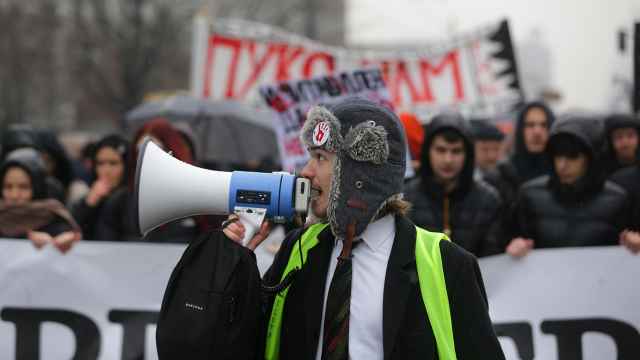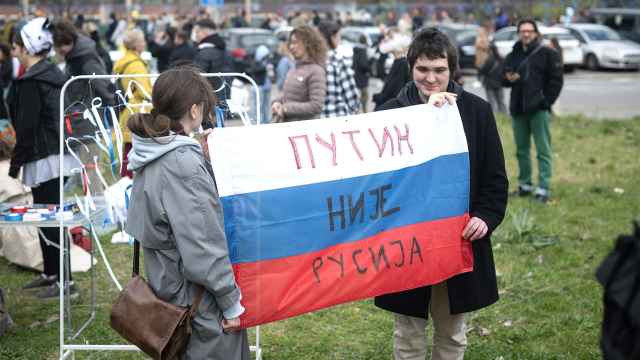Serbia on Wednesday said protesters' claims that they were targeted by a "sound cannon" were refuted by an investigation carried out by Russian intelligence officers.
The officers with Russia's Federal Security Service (FSB) concluded no sonic devices were used to violently disperse a March 15 mass demonstration that took place in Belgrade, Serbian President Aleksandar Vucic said.
That protest — the country's biggest anti-corruption demonstration since a deadly train station roof collapse last year sparked a national protest movement — had gathered between 100,000 and 300,000 people.
But it descended into panic after an unexplained noise triggered chaos and sent hundreds of protesters fleeing.
Participants and activists accused the government of using a "sound cannon" or other sonic weapon, and media published photos of a police vehicle equipped with what appeared to be a U.S.-made LRAD 450XL long-range acoustic device.
While Interior Minister Ivica Dacic confirmed that Serbian police possess such equipment, he denied it was used at the protest.
The Serbian government invited both the United States' FBI and Russia's FSB to investigate.
While the FBI has not commented on the request, signed by Serbia's Interior Ministry on March 18, the FSB responded by sending a team in late March.
Vucic said in a press conference on Wednesday that the FSB report showed there was a "lie about the use of a sound cannon" and he threatened legal action over allegations that one was used.
Serbian civil society groups say they gathered over 3,000 testimonies, in which witnesses at the protest described a noise like a crashing plane or an oncoming car. Some reported lasting health effects.
Last week, activists delivered a petition with over 500,000 signatures to the UN office in Belgrade demanding an international investigation.
The student-led protest movement began after a fatal roof collapse at Novi Sad train station on Nov. 1, 2024, which killed 16 people.
The tragedy, widely seen as a symbol of state corruption, has sparked Serbia’s biggest unrest since the 1990s.
A Message from The Moscow Times:
Dear readers,
We are facing unprecedented challenges. Russia's Prosecutor General's Office has designated The Moscow Times as an "undesirable" organization, criminalizing our work and putting our staff at risk of prosecution. This follows our earlier unjust labeling as a "foreign agent."
These actions are direct attempts to silence independent journalism in Russia. The authorities claim our work "discredits the decisions of the Russian leadership." We see things differently: we strive to provide accurate, unbiased reporting on Russia.
We, the journalists of The Moscow Times, refuse to be silenced. But to continue our work, we need your help.
Your support, no matter how small, makes a world of difference. If you can, please support us monthly starting from just $2. It's quick to set up, and every contribution makes a significant impact.
By supporting The Moscow Times, you're defending open, independent journalism in the face of repression. Thank you for standing with us.
Remind me later.






